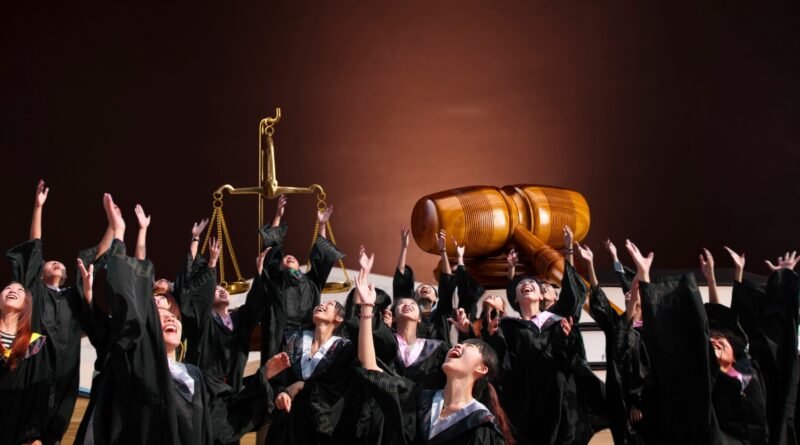Law Students Push Back Against Law Firms Capitulating to Trump: A Growing Resistance
Since February 2025, President Trump has wielded executive orders to threaten and punish major law firms that represented his political opponents or employed his critics, cutting them off from government contracts and barring access to federal courthouses unless they capitulate to his demands. To date, three firms—Perkins Coie, WilmerHale and Jenner & Block—have challenged those orders in federal court and won rulings blocking the most punitive provisions. Meanwhile, other firms have “taken the deal,” agreeing to pledge up to $100 million in pro bono legal services for Trump‑approved causes and to roll back diversity, equity and inclusion (DEI) initiatives rather than face the economic threats of targeted executive actions.
Firms That Held the Line Versus Those That Caved
Among the firms resisting Trump’s orders are:
- Perkins Coie, WilmerHale, Jenner & Block – each secured temporary restraining orders blocking Trump’s directives.
- Susman Godfrey – has publicly pledged to mount its own legal challenge.
Conversely, nine of the Top 100 firms by revenue have struck “deals” with the administration, including:
- Paul Weiss (first to settle)
- Skadden Arps, Willkie Farr, Milbank, Kirkland & Ellis, Simpson Thacher & Bartlett, Cadwalader Wickersham & Taft, A&O Shearman, among others.
Stephen Miller, senior Trump aide, crowed that “we’re going to be close to a billion [dollars of pro bono commitments] soon” as the administration added more firms to its list of “cooperative” practices.
Broad Professional Backlash and Student-Led Resistance
The legal profession’s establishment has not been silent:
- American Bar Association and over 50 state and local bar associations condemned the orders as unconstitutional.
- Nearly 80 law school deans signed a joint letter denouncing the administration’s targeting of firms as violations of the First and Sixth Amendments.
- 21 Democratic state attorneys general called on the profession to defend the rule of law.
- 82 Harvard Law professors joined an open letter accusing the Trump administration of “weaponizing federal power to compel ideological conformity”.
At the associate level, Rachel Cohen, a third-year associate at Skadden, spearheaded an open letter—signed by over 1,500 associates as of March 27—urging Big Law leaders to stand united in defense of the profession. After Skadden quietly approached the administration to negotiate its own agreement, two more associates, Brenna Trout Frey and Thomas Sipp, publicly resigned in protest, denouncing their firm’s “craven surrender” to political coercion. Scores of alumni from Skadden and Paul Weiss have now added their names to alumni letters condemning their firms’ decisions as “on the wrong side of history”.
Campus Recruiting and the Student Calculus: Money Versus Morals
Big Law’s $245,000 starting salaries remain a powerful draw—especially against an average law‑school debt of $118,000—but students are weighing principled stands more heavily than ever before. According to Bloomberg Law:
- Applications to U.S. law schools are up 23% this cycle.
- One in five new law grads ends up in work not requiring bar admission.
- Paul Weiss alone hired 182 associates in 2024—a 48% increase over 2023, underscoring Big Law’s voracious appetite for talent despite the political turmoil.
Yet at Georgetown Law, a student affinity group canceled a recruiting event with Skadden Arps, issuing a letter that its deal with Trump “demonstrates a lack of moral courage and a capitulation to political coercion,” and pledging to withhold top candidates from firms that caved under pressure. Co‑president Caleb Frye, a second‑year student, stressed: “We know we’re not going to convince everyone, but we want Skadden to know they won’t get the very best candidates”.
Shifting Preferences: Favoring Firms That Fight Back
A host of firms have leveraged principled resistance into recruiting advantages:
- Perkins Coie saw no hesitation in articulating its position during campus events.
- Covington & Burling, one of only 11 Vault 100 firms to sign an amicus brief supporting Perkins Coie, is elevated in many student rankings. As one Covington associate put it, “I can honestly and vociferously say we do not stand with those who capitulated”—a message that resonates strongly with recruits.
- Selendy Gay, an emerging boutique, drew praise from Stanford Law’s Bryce Tuttle after signing the same amicus brief—a sign that students are paying attention to principle as much as prestige.
The Student Role in Upholding the Rule of Law
Beyond recruiting events, students are mobilizing in other ways. Lawyers Defending American Democracy’s Lauren Stiller Rikleen argues that the “lever of law student pressure” may be one of the few hopes for preserving the independent practice of law, calling on students nationwide to lobby, speak out, and consider the long‑term reputational costs of supporting firms that bend to political coercion.
Conclusion: A Profession at a Crossroads
The tug‑of‑war between market incentives (six‑figure salaries, coastal offices) and professional ethics (defending judicial independence, resisting political extortion) has never been more acute. Law students—facing crippling debt but armed with moral conviction—are increasingly willing to sacrifice short‑term gains for long‑term integrity. Whether this shift will force Big Law to rethink its acquiescence or simply spawn a parallel “resistance” recruitment pipeline remains to be seen. But for the first time in generations, the future of the legal profession may hinge on the choices of its newest members.




